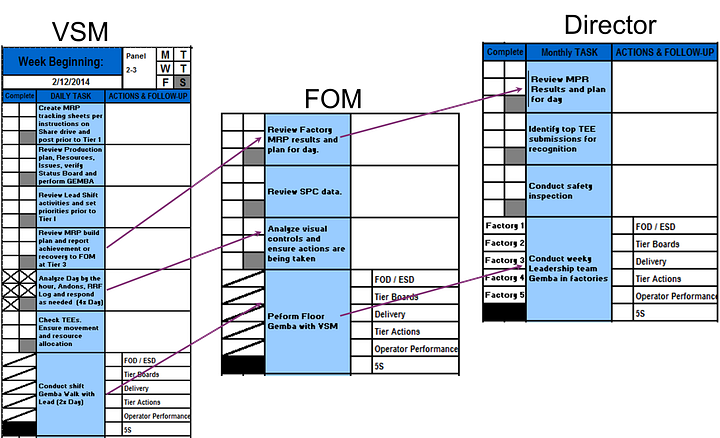Entropy is Easy
Improvement Takes Energy
Welcome to Polymathic Being, a place to explore counterintuitive insights across multiple domains. These essays explore common topics from different perspectives and disciplines to uncover unique insights and solutions.
Today's topic shares insights from Lean Six Sigma on the difficulty in overcoming the slow degradation of performance through entropy. We’ll explore a few key insights into how to prevent this both professionally and personally.
Intro
Entropy occurs when any system goes from a state of order (performance) to equilibrium (status quo) and then to chaos. The only way to overcome entropy is with energy. A great example is a cup of coffee. Once you pour it into a mug, it will cool to room temperature equilibrium unless you continue to apply heat.
Work and Personal processes follow the same pattern. Without the addition of energy, everything starts to suffer from entropy. It doesn’t matter how beautiful and amazing the original process or intent was; without the addition of continued energy, the system or life goal will degrade over time. Entropy is easy; maintaining performance is hard. What’s even harder is adding enough energy to really improve.
In Lean Six Sigma, the goal is to optimize processes. You see this in your daily shopping at any major store, where everything is laid out for flow. If you’ve ever been in a high-performing factory, the inside is typically well-organized, incredibly clean, and precision focused.
They look great, but that’s only 20% of any lean transformation. It honestly doesn’t take that much energy, just a lot of money. It’s also not enough to return the results everyone is looking for. The other 80% is much less noticeable and much more challenging to achieve, and includes:
Ingrained work habits
Day-to-day and hour-to-hour work routines
Changes to the information required
The way you think about problems, manage work, and productivity
Simply put: The 80% are Behaviors.
🎧Prefer to listen? You can find these essays on all major podcast players!
To underline how difficult this second part is, a classic story comes from the Toyota Production System, the premier organization in Lean Manufacturing. Toyota is incredibly open about its processes. It hosts tours regularly, and everything is posted online for anyone to learn.
During one of the tours, an auto executive from a competitor asked, “Aren’t you giving away too much of your processes? Aren’t you worried about competition?” The Toyota exec laughed and said, “What you see here is easy; what is hard to copy is the culture, and we aren’t worried about competition from that.”
Let that sink in. The 20% is easy, and the 80% is so hard he’s not even worried that you’ll get there. That’s because the hard part is the systems and processes that keep entropy at bay and accelerate performance. That requires energy, lots of it, and most leaders just won’t put in that effort. It requires you to Do What You Say.
A great example is the Lockheed Martin F-35 factory shown above. While the factory looks great, its performance has constantly suffered from that cultural challenge across manufacturing, engineering, and the supply chain. They’ve nailed the easy things but haven’t succeeded in the cultural habits that reduce entropy. That’s because it requires an entirely different mindset.
“You can act your way into a new way of thinking faster than you can think your way into a new way of acting.”1
A Solution
One of the most powerful tools to drive these new ways of thinking and acting is Leader Standard Work. The idea is easy: It captures the 10-15 things you need to do each day, the five or so things each week, and critical monthly tasks that help ensure success. These are tasks that, if not done, start to cause problems.


Sounds easy, right?
Not at all. Leader Standard Work is the single hardest improvement to implement and one of the first to disappear when people stop holding themselves accountable for it. It should be easy, but it requires two things.
Focused Knowlege
Discipline
Leader Standard Work helps structure and focus your efforts, it helps you oversee the efforts of others, and it integrates with your leader’s oversight so that he’s looking at the right measures. As I like to say:
“How does a General get 10,000 soldiers to do the right thing?”
“He learns where to look to measure success.”
In The Enemy’s Gate is Down, we explored an example of this regarding vehicle maintenance in the Army. Leadership Standard Work is a critical tool that highlights the key places to look to measure success so you can focus your efforts.
Focusing on the right things is only the first step. The second step, Discipline, requires providing Direction, Energy, and Proactive Accountability to those focus points to keep entropy at bay and accelerate performance because nothing improves without energy. Remember here that Leader Standard work needs to be PRO-Active, not reactive. You’re looking to address things before they become a problem, and this step significantly reduces the amount of energy you need to apply.
Two cool things emerge once you take these steps.
You quickly find that what you first put on the list doesn’t matter. Often, when you write out those tasks and consider who should do them, you find out you’ve ‘stolen the monkey’, and those are, in fact, not your tasks. When you scrub the list, you get smarter on the critical tasks, and your knowledge becomes more focused.
As you start acting with discipline, you find that these things get easier and easier and easier. It’s ironic, but the difficult thing is doing nothing, letting entropy take over, and then constantly fighting fires. It takes energy to improve, but in the end, it takes less energy to maintain once you find the right places to apply that energy.
Focused knowledge and discipline are critical to the job and equally crucial when applying them to your personal lives.
Applied to Life
Recently, Martin Prior wrote Goal setting is pointless - you need to build good habits where he captures the main gist of the idea of acting into a new way of thinking. Goals are thinking, habits are acting. While you might not need something as formal as Leader Standard Work for your home, the idea still sticks.
What are the key things you need to get done for the day, week, and month?
What are the recurring things that you keep slipping up on?
How do your tasks/habits align with those around you to whom you need to be accountable? (Spouse, partner, children, parents, etc.)
Just as 80% of work is culture and behaviors, so is 80% of your life. This means you must focus on what’s important and apply discipline to execute. You need to apply energy to overcome entropy.
Thankfully, like Toyota, there’s no shortage of tools, but making these changes is hard. That’s why we form them into habits based on Direction, Energy, and Accountability. As we create these habits, it’s important to remember that in Lean Six Sigma, we call it Continual Improvement, not Perfection. The goal is to keep improving over time.
Summary
Entropy is easy. It takes effort to grow. As you begin to develop focused discipline and habits, that growth becomes easier and easier. The hardest thing to overcome in either work or life is that we are often all successfully unsuccessful. This means there’s not a lot of onus to change and hold that proactive accountability because no one is demanding it from us.
A journey of a thousand miles begins with a single step. As long as you keep making those steps, you’ll begin to overcome entropy, and your life, family, and work will become more ordered, happy, healthy, and aligned with your goals. Entropy is easy; growth takes energy.
What are some ways you’ve turned good intentions into disciplined habits? How did you get them to stick? We’d love to hear your comments.
“You can act your way into a new way of thinking faster than you can think your way into a new way of acting.”
Did you enjoy this post? If so, please hit the ❤️ button above or below. This will help more people discover Substacks like this one, which is great. Also, please share here or in your network to help us grow.
Polymathic Being is a reader-supported publication. Becoming a paid member keeps these essays open for everyone. Hurry and grab 20% off an annual subscription. That’s $24 a year or $2 a month. It’s just 50¢ an essay and makes a big difference.
Further Reading from Authors I Appreciate
I highly recommend the following Substacks for their great content and complementary explorations of topics that Polymathic Being shares.
Goatfury Writes All-around great daily essays
Never Stop Learning Insightful Life Tips and Tricks
Cyborgs Writing Highly useful insights into using AI for writing
Educating AI Integrating AI into education
Socratic State of Mind Powerful insights into the philosophy of agency
Might be Matt Kurtenbach, but dozens of versions of this quote exist









The daily fitness challenge I do is an example of daily actions that prevent entropy. Kind of wild to think of some of the feats I’ve accomplished which in large part have been supported by this small but consistent habit. Less than 10 min a day can change your life.
Great piece brother
Nothing easy compared to game 7
https://youtu.be/eQ70BkPkANM?feature=shared